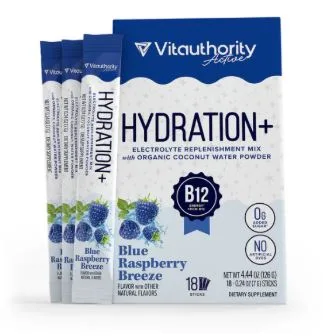Shopify for B2B Enterprise: How Do You Build Portals That Actually Work?
Is your B2B portal secretly turning buyers away? You would be surprised how often the answer is yes.
A vast majority of B2B buyers are ready to switch suppliers just for a better digital experience. That is not a warning. That is a wake-up call.
Today’s B2B buyers expect smooth navigation, fast reordering, and tailored pricing: all without picking up the phone. If your enterprise portal still feels like it was built a decade ago, you are already leaking revenue.
This is where Shopify for enterprise steps in: not just as a tool, but as a growth enabler. It is no longer just for DTC brands with flashy storefronts. With support from a seasoned Shopify website development company like Elsner, businesses can hire Shopify developer experts to simplify even complex B2B operations into sleek, scalable portals.
This guide breaks down what works, what does not, and how to build Shopify portals that serve your B2B buyers well. So, let’s begin:
Why Use Shopify for Enterprise B2B?
Is Shopify suitable for enterprise-level B2B businesses?
Yes, but only when used properly.
- Full control over product catalogs, even with tens of thousands of SKUs
- Support for tiered pricing, custom catalogs, and buyer-specific discounts
- Secure login-based wholesale access
- Integration with ERP and CRM systems such as NetSuite, SAP, and more
These capabilities make it ideal for manufacturers, distributors, and wholesalers.
Still, out-of-the-box templates will not be enough. To explore Shopify’s full B2B potential, you need customized Shopify development services and a Shopify website development company that understands enterprise operations.
What Makes a B2B Portal Actually Work?
Many B2B portals fall short. They are often slow, poorly structured, and not built for the way B2B customers actually buy.
Here are the features that matter:
1. Personalized Dashboards
Buyers should feel like the portal is tailored to them.
- Display past orders and reorder suggestions
- Auto-fill billing and shipping details
- Offer contract-based pricing
2. Quick Bulk Ordering
B2B buyers value speed and accuracy.
- Allow CSV upload for orders
- Enable quick reorder buttons
- Provide editable quantity selectors
3. Multiple Roles and Permissions
Enterprise buyers often operate in teams.
- Define roles: buyer, manager, finance
- Control what each role can view or edit
4. ERP and CRM Integration
Do not isolate your sales portal.
- Connect with tools like NetSuite, Salesforce, and Zoho
- Sync product data, pricing, and customer records in real time
What Shopify Development Services Do You Really Need?
This goes beyond using drag-and-drop features. A capable Shopify development company should offer:
| Feature | Why It Matters |
| Custom app development | Some workflows require logic that Shopify does not support by default. A Shopify app development company should be equipped to build tailored apps. |
| Theme customization | DTC themes do not work for B2B buyers. The UI/UX must reflect enterprise buying behavior. |
| B2B checkout flows | Support net payment terms, PO options, and role-based approval steps. |
| API integrations | Seamlessly sync with business tools like SAP, QuickBooks, and CRMs. |
| Speed optimization | Buyers will not wait. A high-performing portal matters. |
Custom Shopify Apps Deliver Real B2B Power
Standard features do not always meet enterprise needs. A Shopify app development company can create apps that:
- Enforce unique purchasing rules (e.g., case-pack ordering)
- Manage catalog access by customer group
- Add admin approval layers to the checkout process
These features ensure that the Shopify platform works around your business, not the other way around.
How to Choose the Right Shopify Website Development Company?
A quality Shopify development company does not just execute. They ask the right questions, bring insights to the table, and help refine your roadmap.
They should:
- Have experience in building B2B portals, not just DTC stores
- Be familiar with Shopify Plus and its advanced features
- Understand how to work with large data sets and business systems
- Provide support beyond launch, including troubleshooting and scaling
Elsner fits this profile. They offer comprehensive Shopify website development services tailored to B2B brands. From custom theme design to ERP integration, they bring depth and reliability to enterprise Shopify builds.
Shopify B2B Features: What’s Built-In vs What Needs Development?
Here’s a quick look at what Shopify offers out of the box and where custom development takes over:
| Shopify Native Features | Requires Development Support |
| Multi-currency support | Role-based pricing |
| Custom domain setup | Purchase approval workflows |
| Discount code management | Login-based catalog visibility |
| Product variant options | Purchase Order-based checkout |
Sample Code: Lock Pricing Behind Login
{% if customer %}
<p>Price: $99.00</p>
{% else %}
<p>Please login to view pricing</p>
{% endif %}
This is a simple example. But applied across hundreds of products with varying rules, it requires solid development support. That is where a company like Elsner proves valuable.
Mistakes to Avoid When Building a B2B Portal
Even with the right platform, B2B portals fail when you ignore the basics. These mistakes can cost you real business.
● Using a consumer-focused theme with no adjustments
Looks aren’t everything. B2B buyers need features like bulk ordering, custom pricing, and product grouping. A generic theme won’t cut it.
● Skipping user role and permission logic
Not every user needs to see the same thing. Without proper roles and permissions, you risk confusion—or worse, exposure of sensitive info.
● Ignoring ERP or CRM integration
B2B buyers expect accurate data. If your portal doesn’t connect to your backend systems, you’ll have delays, mistakes, and frustrated users.
● Not optimizing for mobile use
Many buyers use their phones. If your portal isn’t mobile-friendly, you’re making it harder for them to order or check products.
● Overlooking page load speed and performance
Nobody waits for slow pages. A laggy portal makes you look unprofessional and pushes buyers away.
These errors lead to friction and frustration. They increase bounce rates and lower conversion rates.
Case Study: How a B2B Electronics Supplier Increased Orders by 41% with a Custom Shopify Portal?
Client:
A mid-sized electronics distributor based in California, supplying B2B customers across the U.S., including wholesalers, educational institutions, and repair centers.
Challenge:
The client was operating on an outdated, WordPress-based system using WooCommerce. It looked fine but failed to support their complex B2B needs. Key issues included:
- No tiered pricing or login-based catalog
- Manual quote and PO processing
- Frequent order errors due to ERP misalignment
- No mobile optimization—buyers couldn’t place orders from field or shop floors
As a result, conversion rates were low, quote-to-order time was slow (often 3–4 days), and their largest accounts were voicing frustration.
Solution:
The company partnered with Elsner, a Shopify development company experienced in B2B portals. Here’s how the problem was addressed:
- Platform Migration to Shopify Plus for advanced customization
- Role-based access for dealers, schools, and repair clients—each with different product views and pricing
- Purchase Order integration alongside traditional checkout for bulk buyers
- ERP syncs with real-time inventory and customer-specific terms using Shopify’s APIs
- Mobile-first design with fast load times and simplified checkout for on-the-go ordering
- Quote builder integrated directly into the product pages
Results (within 4 months):
| Metric | Before | After |
| Order Accuracy | 82% | 98.5% |
| Quote-to-Order Time | 3–4 days | < 24 hours |
| Mobile Orders | 8% | 29% |
| B2B Reorder Rate | 52% | 73% |
| Revenue from Top 10 Accounts | — | ↑ 41% |
Quote from the Client:
“Our new Shopify portal does what our old site never could—serve our clients how they actually buy. The ability to reorder in seconds and view negotiated pricing changed everything.”
Final Thoughts: Build Portals That Work, Not Just Look Good
Enterprise B2B buyers want reliability. They expect speed, precision, and a tailored experience. If your Shopify portal, built without the right Shopify App Development Company, falls short in any of these areas, they will look elsewhere.
Templates and generic plugins are not enough. You need thoughtful development—custom apps, flexible pricing rules, secure logins, and scalable backend systems.
Elsner is a trusted Shopify website development company that brings experience, clarity, and reliability to enterprise builds. Their Shopify development services help you launch not just a portal but a channel that actively drives business.
If you are serious about using Shopify for enterprise, the next step is finding the right development team. A team that gets B2B, custom workflows, and scale. Talk to Elsner today— a recognized Shopify website development company that builds B2B portals that actually work.



